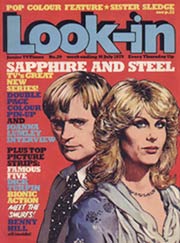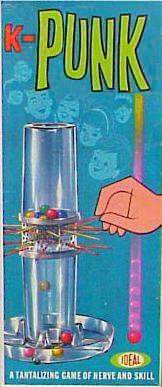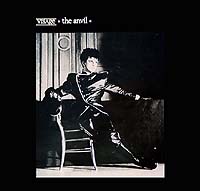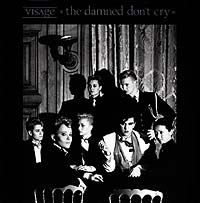February 29, 2004
A VAST DENFUL OF HORROURS
Just been (re)reading Peter Ackroyd: Hawksmoor and Dan Leno and the Limehous Golem. Hawksmoor was famously inspired by Sinclair's Lud Heat, but is more digestible than Sinclair, if far from transparent. Ackroyd's simulation of sixteenth century prose is masterly (not that I'm in a position to judge, really) and the construction of uncanny correspondences between the twentieth century and the 1700s is managed, appropriately enough, with all the skill of an architect. Yet the book is ultimately impenetrable; one of its key motifs is the convex mirror, and it is as cold and unyielding as the surface of a looking glass. It feels, in fact, that the book is like two mirrors positioned in front of one another, an infinity of reflections with no original. Time itself - the book's chief preoccupation - is just such a system of infernal echoes.
'Truly, Time is a vast Denful of Horrours, round about which a Serpent winds and in the winding bites itself by the Tail. Now, now is the Hour every Hour, every part of an Hour, every Moment, which in its end does begin again and never ceases to end: a beginning continuing, always ending.' (62)
Has anyone else read Hawksmoor? I find it fascinating but feel that I'm missing something....
Dan Leno is much more accessible, a macarbre romp through fogbound Victorian London, thick with the peasouper atmosphere Robin evoked so powerfully in this post , taking in music hall, the reading room at the British Museum (at which Ackroyd places Karl Marx and George Gissing) and Babbage's Analytical Engine. In its hypertextual Victoriana and its stalking through the fogbound streets of Limehouse, k-punk would file it somewhere adjacent to The Talons of Weng-Chiang.
In any case, all of this has revived my interest in the Hawksmoor churches, about which I know very little. I propose a trip around some of them for our next London blogger outing....
PROLETARIAN ENJOYMENT
That Lyotard quote (found my copy of LE underneath a pile of stuff):
'Death is not an alternative to it, it is part of it, it attests to the fact that there is jouissance in it, the English unemployed did not become workers to survive, they - hang on tight and spit on me - enjoyed the hysterical, masochistic, whatever exhaustion it was of hanging on in the mines, in the foundries, in the factories, in hell, they enjoyed it, enjoyed the mad destruciton of their organic body which was indeed imposed upon them, they enjoyed the decomposition of their personal identity, the identity that the peasant tradition had constructed for them, enjoyed the dissolution of their familes and villages, and enjoyed the new monstrous anonymity of their suburbs and the pubs in the morning and evening.'
- Libidinal Economy, 111
NEW N*E*R*D*
'She Wants to Move': I'm not sure what to make of it (which on the whole is, I reckon, a good thing). I think I'm starting to like it. Am I the only one?
CAFF WARS (REPRISE)
Simon compares the Undercurrent/k-punk/Stelfox position with MES/ The Fall and - yes, well below the belt, Simon - Beautiful South; Nigel Richardson invoked - even worse - the dread spectre of the Style Council and their white socks. How can the pro-caff lobby bring together such extremes? The Beautiful South - defiantly non-aspirational, conspicuously unglamorous, stick-in-the mud ultra-local - and The Style Council - upwardly mobile (nothing's too good for the stylish prole-about-town), cosmopolitan/ internationalist: I'd always have thought of these two as occupying opposite extremes on the proletarian pop continuum.
btw is inverted snobbery really worse than actual snobbery, I wonder? From its name on, Pret is self-consciously pushing a bourgeois agenda (and Simon's argument buys into the unwarranted assumption that Pret food is somehow more healthy than cheap fast food).
All of this reminds me of Lyotard in Libidnal Economy, when he speaks out/ up for the artificiality of proletarian desire. Yes, don't cry for the loss of some authentic, organic culture: we enjoy our anonymous pubs and crap sausages (I'd quote but my copy has gone AWOL. Michael?)
THE IDEA OF NORTH
Has anyone out there got a copy of Glenn Gould's The Idea of North? I've wanted to hear this for years, but have never been able to get hold of a copy.
February 28, 2004
February 27, 2004
February 26, 2004
WARM IT UP
Robin dares to ask the unaskable: what is 'Milkshake' about? Speaking as the 'fellow ingenue' who had enquired of Robin if had got any more idea than I had, I must confess to being relieved that there isn't a clear consensus about the meaning of the obscure practice Kelis is offering for sale. Previously, I had the impression that I was the only person who didn't grasp the double entendre. Now I know that everyone else is as baffled as me, the need for an explanation seems less pressing.
DILAPIDATED DETROIT
Did people check out the comments to the Cafe Culture post? The link Kate posted up to detroitblog is really worth following. Many wonderful posts on exploring dilapidated Detroit, on wandering through abandoned spaces, on picking through the remains of occupant's lives and (re)constructing narratives out of what is discarded and left behind. It recalls Robin's original post on life as a process of dilapidation/accretion. What we are as the traces we leave, the hoards we assemble (which become rubbish, detritus, to be disposed of, once we die). Death, then, not as a single moment, but as the process of disassembly and dissolution of the collections and connections we make.
NO NOW
Fascinating piece here on Pop, Jazz, time and honesty. Phil distinguishes two distinct sensibilities and temporalities: a 'Jazz' aesthetic, based upon the faithful reproduction of live performance and a 'Pop aesthetic', based around an 'eternal Now.' The Jazz aesthetic is exercised by profound anxieties about fidelity, about 'honesty.' No such worries with Pop.
Couldn't we reverse this relation? Pop's indifference to playing live, its dependence upon overdubs and its predilection for generating sounds that could only ever exist in the studio, means that, at the point of production, there is never a Pop 'Now'. Sure, at the point of consumption, Pop is associated with particular moments (Phil's point about the Now! compilations demonstrates this beautifully.) By contrast, Jazz is about a (re)captured Now, about the drama of a performance unfolding in front of us, in real time.

Phil positions Miles' and Teo Macero's 'recordings' of the late 1960s and 1970s as a diagonal between the Jazz and Pop sensibilities. They 'seemed to explicitly deny the existence of any “now,” at least as far as the recording process was concerned. He argued, through his work, that studio albums had no obligation to replicate real events—that they could be elaborate constructs, faithful only to their own internal logic.' The obvious genius of Miles and Macero notwithstanding, there's a case for saying that their techniques were not so much groundbreaking as Jazz playing catch-up with Pop - a trading of Jazz's Now for Pop's unlife.
Phil characterises Miles and Macero's stance as being opposed to any 'honesty.' I wonder if duplicity isn't a better term than 'dishonesty.' Duplicity, as opposed to fidelity; duplicity, with its (lexical and semantic) connections to doubling, dubbing. The version is not a dishonest reproduction of the truth: it articulates a different ontology, in which there is no present, no presence, no originary unity, but only a time that is always (at least) doubled.
The emphasis on editing, not as a matter of 'tidying-up', anterior to the real process of production, but as the essential creative act, recalls Stanley Kubrick's claim that the most crucial aspect of film directing happens in the editing suite. The opposition between film and theatre doubles the relation between Pop and Jazz. Kubrick's notorious, seemingly sadistic, tendency to make actors repeat takes ad nauseam didn't arise from perfectionism. On the contrary, in many ways, since, when he was watching the actors perform, Kubrick didn't know what he wanted. The real creative process happened long after the actors, the 'liveware', had departed; Kubrick didn't want to pre-empt any decisions he would make then, wanted to keep open as many options as possible. What Kubrick demanded from actors was not a unitary performance that could be faithfully reproduced on celluloid, but a pallet of potentials from which he could construct the onscreen 'performance', after the fact, in the editing suite. Kubrick's anti-humanist methodology treated actors much in the way that Macero treated sounds, as manipulable traces.
February 25, 2004
February 24, 2004
KILL ROBBIE KILL
You won't be surprised to learn that I think that the highlight of Flum's typically thorough analysis of C4's Ultimate Pop Star rundown is his evisceration of Robbie. 'Robbie Williams is not a pop star. He is what a marketing department thinks a pop star should be. Everything about him is so contrived, so forced, so unnatural that he ceases to be anything of note.... Robbie represents all that is wrong about the music industry, and the sooner he finally has his nervous breakdown and fucks off, the better.' YES, YES, YES
February 23, 2004
BEAUTY QUEENS
Then I look away, too much for one day....

Undercurrent takes issue with k-punk's Helmut Newton post.
I think it's far too quick, all this stuff about the male gaze and Newton. It has to be remembered that Newton was a fashion photographer and the primary consumers of his images were women. There's a case for saying that Newton's photographs were images of women for women. It's begging too many questions to assume that women's objectifying of themselves, the cruelties and privations they impose on their bodies, are done for the sake of men. Worth recalling the original meaning of glamour here: a spell or witchery dedicated to shrinking the penis. Newton's women are self-involved, narcisisstic, possibly masochistic, seemingly oblivious to any gaze save their own.

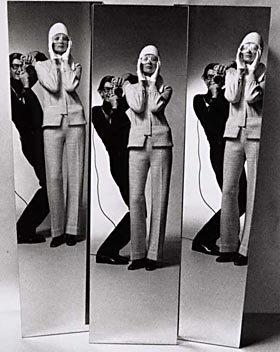
Ballard has some aposite obversations on this. 'I will only say that critics who tremble so fiercely at the thought of the voyeuristic male gaze miss the point that distance generates mystery and enchantment, and expresses the awe with which the male imagination regards all women, as we see so clearly in Newton's photographs. Far from debasing his models (most of whom are not naked), Newton places them at the heart of a deep and complex drama where they rule like errant queens, blissfully indifferent to the few men who dare to approach them.'
Swaying palms at your feet
In any case, the real elitism in Newton's images is not of gender, but of privilege and beauty. He lays down wreathes for a genetic aristocracy, whose magnificence we plebeians can either revere or resent. Satire: absolutey not. Newton comes to beautify and canonize, not to mock. He is a courtier dancing attendance upon these rare, insolently superior creatures, a fabulist constructing elliptical tales of their strange adventures beyond the pleasure principle.
On the shoe thing: there is an image (which I couldn't locate) in which Newton takes an x-ray of a foot in a stiletto. An almost medical interest, yes....
Final (biographical) note: I first became interested in Newton because of his photographs of a man (Steve Strange).
February 22, 2004
ROBBIE, THE CLOSEST THING WE'VE GOT TO ELVIS
Some twat on C4's Ultimate Pop Star, tonight: 'Robbie is the closest thing we've got to Elvis.'
Good God.
I don't know about you, but I can barely stand to watch Robbie. He's almost too perfect an object of hatred. The arch PoMo meta-prancing, the cocaine gurning, the faux-profundity of the lyrics (actually listen to the words of the vile 'Angels', for instance: they are signifers of meaningfulness that are in themselves almost total nonsense), the end-of-the-pier England-at-its-worst 'humour', the tiresome arrogance and posturing self-hatred. He manages to push ALL my buttons, manages to work me up into a steaming rage EVERY TIME I see the fuck.
Had to get that off my chest.
But, fuck, Adam and the Ants, weren't they brilliant?
PRET A BOURGEOIS
Great contribution from Dave Stelfox to the great caff debate. Dave's point about the standardization of desire and aspiration is absolutely right. And he's correct to highlight the class dimension: McDonalds and Burger King might be blandly homogenizing, but, at least, unlike Pret and Starbucks, they're not hawking a bourgeois agenda with their rocket and strawberry mocha. (Incidentally, I'm sure I heard somewhere that Pret sandwiches in are as unhealthy as McDonalds' cheeseburgers.) Starbucks is like the Waterstones of coffee, its insufferable griduate brasseratis as haughtily superior as the Waterstones' wannabe Cecil Day Lewis's.
THINGS TO COME

Went to see the 1936 adaptation of Wells' Things to Come at Tate Modern this afternoon. Wells evidently saw Things to Come as the modernist antidote to Metropolis' anti-science dystopia. It comes off as a hymn to Progress in which humanity's saviours are a masonic co-operative of scientists, mechnanics and engineers; their enlightened rationality will deliver humanity from the brigands and warlords who thrive upon conflict. Parts of the film were very much on the ruinationalist theme: Wells' vision of a thirty year war starting in 1940 included a Blitz-like destruction of Everytown (London). The sets - especially the war-gutted city and the reconstructed metropolis of 2036 - were astonishing feats of design. Question: why is this inspiring whereas today's cinematic giganticism is so depressing and flat? I think, it's because today's digital blockbusters are solely about Spectacle as opposed to Vision. Wells' vision was no doubt troubling and flawed, but it gave the film something for which no amount of pixel-crunching can substitute.
'I found the Palace of Green Porcelain, when we approached it about noon, deserted and falling into ruin. Only ragged vestiges of glass remained in the windows, and great sheets of the green facing had fallen away from the corroded metallic framework. It lay very high upon a turfy down, and looking north-eastward I entered it, I was surprised to see a large estuary, or even creek, where I judged Wandsworth and Battersea must once have been. I thought then - though I never followed up the thought - of what might have happened or might be happening to the living things in the sea.
... Clearly we were in the ruins of some latter-day South Kensington!'
February 20, 2004
ROCKISMO
Ha! Angus and I cited amongst such luminaries as Christgau, Simon and SFJ in this post on rock critics daily surveying the many and various uses of the term 'rockism'.
ABANDONED PLACES
Junior Boys' producer Matt Didemus emails with news of another site delighting in dilapidation: abandoned-places.com.

Anglo-Uneasy Listening for today:
1. Virginia Astley's From Gardens Where We Feel Secure . Bought this on Marcello's fine recommendation . See also Pete's enthusing at It's All in Your Mind. Astley's is a kind of semi-ruined pastoral, a bucolic summer-hazed delirium shadowed by mumbling disquiet, in which mechanically-iterated found sounds are put into concert with an oneiric chamber music. Regular k-punk readers will be delighted to know that this album began as a series of demos produced by none other than John Foxx.
2. Gavin Bryars' The Sinking of the Titanic . Bryars' uses the hymn , 'Autumn' which was reputedly played as the Titanic sank, as the basis for this epic meditation on disaster and inundation. 'My initial speculations centred, therefore, on what happens to music as it is played in water. On a purely physical level, of course, it simply stops since the strings would fail to produce much of a sound (it was a string sextet that played at the end, since the two pianists with the band had no instruments available on the Boat Deck). On a poetic level, however, the music, once generated in water, would continue to reverberate for long periods of time in the more sound-efficient medium of water and the music would descend with the ship to the ocean bed and remain there, repeating over and over until the ship returns to the surface and the sounds re-emerge.'
SKYSCRAPERS OVERSHADOWING SEVENTEENTH-CENTURY GRAVEYARDS
It's more to do with the paradoxes of steampunk or cybergothic ('skyscrapers overshadowing seventeenth-century graveyards') than nostalgia. Something to do with Kapitalism starting here, the strange temporal anomalies and retro-futurisms it imposes.
RAMBLES

Just a few connections, really.
Much to take up in Simon's contribution to the ruinationalist discussion, but these remarks on boredom leapt out after reading Burchill's essay on Graham Greene ('Greeneland') yesterday. Simon: 'went through a phase recently of feeling nostalgic for boredom, the kind you felt as a suburban child in the uk in the 70s -- the utter sense of privation experienced on a Sunday around 6 PM when it was just religious programmes... the dearth of stimuli... tv used to go off in the afternoons, there was just a testcard... no night time tv... no web, none of the surfeit distractions kids today have... it was almost spiritual, the sense of oppression weighing on the soul, nothing to relieve the tedium... it was enriching in the sense that you were forced to develop an imagination to survive it)'
Burchill, from 'Greeneland':
'All sensitive adolescents, capable of so much yet powerless to effect any real change in their lives, feel boredom more strongly than any other emotion, but it is something they break out of when they break into the big world - a benign boredom, a skin that can be shed and kept dead. Greene's boredom was a rare strain - a malignant boredom that I believe he cultivated as an elegant escape from the ultimate horror to the sensitive young - heartiness, bearing down on him mercilessly in the shape of robust, public school, Anglican normality.
"I was seventeen and terribly bored and in love with my sister's governess - one of those miserable, romantic loves of adolescence that set in many minds the idea that love and despair are inextricable and that successful love hardly deserves the name. At that age one may fall irrevocably in love with failure, and success of any kind loses half the savour before it is experienced.' (The Lost Childhood)."'
Simon also says that 'obviously Starbucks or Burger King or whatever could be seen as corresponding to Global UberPop Brands like Britney or Justin T... reliable pleasure lacking any local character, pure product, homogenizing, Americanizing etc etc -'
This closely parallels what Ratz, one of Momus' correspondents says about 'uberculture': 'Uberculture is the pervasive culture that is shared by both mass culture and counter/subculture. Kind of the same idea as pop culture, but more mundane. Think of coca cola. Everybody drinks coca cola. The president, the gutterpunk, and the businessman. Andy Warhol once wrote about America being so equal because of its products. If the queen of England went to a baseball game at Yankee Stadium, she couldn't get a hot dog that was any better than the one the guy in the ten dollar seats can get. You also can't, no matter how much money you spend, get a better coke than the one the bum on the street spent fifty cents for.'
And that in turn reminded me of something Robin wrote about the 'auto-collapse of any trade which did not seek to expand its market universally, ie catered to the gentry' and the decline of the luxury brand. 'In truth there are no 'luxury brands' - if there were, they wouldn't really be 'brands' in the sense we understand the word. The idea of a luxury brand is a contradiction, it aspires to be something it can only ever recreate as a simulacra, and dishonestly, because of its inherent aspiration to universality. (This is little more than an extrapolation from Nietzsche of course. And as good liberals warn us, we pursue it at our peril. But let's pursue it anyway).'
This makes me think that there is something aristocratic in the taste for decline and ruin: the resistance to Uberculture is in every sense an objection to levelling, to democratization. Course as Mark Sinker points out in the comments to the Ruins photo-post below, as far back as the 17C it became fashionable for gentlemen to CONSTRUCT ruins . The image at the head of the Ruinationalism post was actually Robert Adam's (c.1759) Design for an Artificial Ruin in the Park at Kiddleston.
As for the music parallels to ruinationalism, I obviously baulk at the suggestion that its sonic equivalent is Britpop. That's because ruinationalism is not straightforwardly nostalgic in the way that Britpop was: it doesn't seek to pretend that the past is still in place, that we can relive it. No: ruinationalists don't want to revive, they precisely glory in the current state of dilapidation (the dilapidation that is the present). As for the contradictions with the taste for Futurism in music, well, Science Fiction has a real taste for the ruined. The overgrown city. That's part of what's always appealed to me about John Foxx. Check out his story 'The Quiet Man' (a beautiful exploration of the overgrown city meme: 'At the bottom of Oxford Street stood the tall Centrepoint tower, its remaining upper windows glinting, while most of the base was covered in vines, mile-a-minute vine especially had grown out from many of the gardens, and living up to its name , had swamped quite a number of roads and buildings in the city') and his photographs of overgrown statues (some of which I've reproduced here).

cf also Justin Barton's 'Future Terrains' which imagines a 'wildization' of the British landscape. 'Much of Northumberland is now woodland; there is forest all the way from the west of Buckinghamshire to the Severn river.'
Perhaps the greatest sonic parallel is the imagined 'mechanical uncanny' music Robin dreams up, inspired by fairground music, faded recordings of folk tunes, and St Etienne. Of the latter's Foxbase Alpha Robin writes memorably: 'Anglophile dub, endlessly expanding cotton mists of reverb suddenly blossoming into starchy medleys of peculiar pop. Recited inventories of tube stops, BBC-accented voices echoing through sooty underground tunnels. There’s something special in this album that I never found with any of their later material, not only in its appealing enthusiastic-amateur sonic constructions but also the sense of the group’s groping, in a bleary haze of PG Tips, woodbines and wednesday afternoon TV black and whites, to articulate the half-imagined lost world, merrie england manqué.'
DUNWICH BEACH, AUTUMN, 1960

On this Ruinationalist tip --- listening to:
Peter Hamill / Public Image CDR burned for me by Simon --- deviant Englishness
On Land - Eno --- this beguiles more with every listen --- an ominous, mournful psychogeography --- Eno's sleevenotes: 'What qualified a place for inclusion on this record was that it took me somewhere, but this might be somewhere that I'd never been before, or somewhere that I'd only imagined going to. Lantern Marsh, for example, is a place only a few miles away from where I grew up in East Anglia, but my experience of it derives not from having visited it (although I almost certainly did) but from having subsequently seen it on a map and imagining where and what it might be. We feel affinities not only with the past, but also with futures that didn't materialise, and with other versions of the present that we suspect run parallel to the one we have agreed to live on.'
JUPITUS JAZZ
Have to echo Jim's fulminations against Phil Jupitus. I was gonna post on this but I couldn't be bothered, Jim's spurred me into action. Jupitus' TOTP 2 selections this week have been, without fail, tediously canonic, irritatingly so. Everything you'd expect: Costello, The Smiths, Madness, ska, feel free to yawn. And he had nothing of any interest to say about any of it, it'll surprise you to know. What exactly is the point of Jupitus? He's the embodiment of a solid, stolid studenty reality principle, Brit middlebrow popcult mediocrity personified. I heard him described as 'Britain's best comedian.' Imagine if he was....
MATHEMATICAL SOLUTIONS
Just spotted this by the great Tim Finney on the Junior Boys' thread at ILX: 'It's too tempting to look at Junior Boys and see the stylistic equation (and either be over-excited or suspicious of that) rather than the group themselves. ie. it's almost too fitting that K-Punk is their biggest cheerleader because they're like the total (mathematical) solution to his problems with the current pop landscape. The tendency is understandable but it can get in the way of whether the music is actually really good or not (I think it is).' Point taken, but k-punk's enthusiasm for the Jbeez, I hope it need not be stressed, is based on the sensual seductions of the sound, not on the fact that it fits some pre-existing theoretical shopping list. On the contrary. Like most everything I love, I didn't know I wanted them until they arrived.
RUINATIONALISM

"Seediness has a very deep appeal ... It seems to satisfy, temporarily, the sense of nostalgia for something lost." - Graham Greene (that's the quote you were thinking of Simon, I reckon)
Hmm rottenness --- wasn't Johnny Rotten famously a Greene fan? Rotten dentistry British teeth....
Also cf Julie Burchill's magisterial essay on Greene, 'Greeneland'
Robin comes back on ruinationalism...... I think this can be opposed to what I once called contaminationalism. Ruinationalism (which dates back at least as far as the Romantic poets skulking around decaying churchyards and lurking amidst architectural wreckage) celebrates the sublime pleasures of the discarded, the composted, the superceded and the inutile. Contaminationalism, on the other hand, articulates a cultural politics of purity and hygiene, forever seeking to clean up, rationalize....
I have to echo Robin's dismissal of Simon's comment because:
(a) food isn't the main point any way - far more important is what Oliver stresses, the possibility of an enclave. Pret a Manger - staffed by alienated labour wage-slaves - has reduced the eating place to a drab functionalism. You don't really feel like sitting and reading, the stainless steel decor repels any desire to linger or spread out.
(b) the food isn't uniformly bad in any case. In his Classic Cafes interview, Sinclair makes a point of stressing that food is crucial to his appreciation of the caff experience. One thing that is manifestly true is that it is only in caffs that you can find a decent cup of tea or a cappuccino. Surely we can all agree that Starbucks coffee - in any of its forms - is revolting. No-one goes into Starbucks for the coffee, surely. Give me a greasy Italian cafe with an old gaggia any day. As for tea, it's a lost art. Robin, again: 'note to ‘the new brasserati’: if I wanted to dunk a teabag on a string in a cup, I’d have stayed at home. GET AN URN, wanker. And oh for a world when you could just say ‘a cup of tea’ without having to specify six-variable co-ordinates to locate the desired tea-type on the abstract phase-diagram of baroque herbal infusions.'
February 19, 2004
Your toxic gun, stick it under
This by Momus is good on a number of things: the exhaustion of the concept of youth, the notion of meta-pop (which is poised somewhere between Eppy's Pop II and Pop III, it would seem), and the Orientalist majesty of the new Britney (it would make a great 007 theme, as M rightly points out). Yeh: 'Toxic' is by far and away the best Pop single of the year so far.
CAFE CULTURE
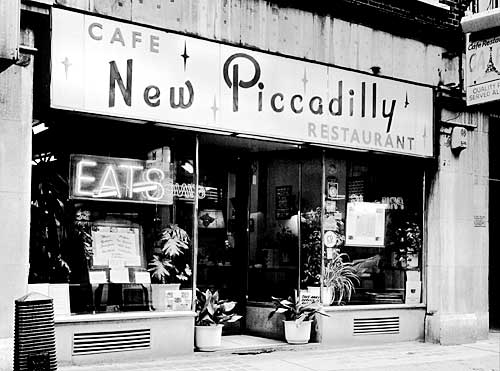
A few connections between recent (or fairly recent) postings. Luka posts a link to DerelictLondon.com. Robin has a link to Classic Cafes.co.uk .
What is it in us that cleaves to the derelict, the deserted, and the dilapidated? It's a very English thing. 'This is where England most truly excels,' notes Adrian Maddox, the proprietor of Classic Cafes.co.uk in his essay-cum-compendium piece, Britannia Moribundia , 'in all the characterful shabbiness of its drizzled parks, soiled launderettes, frayed tailors, abject chemists, sparse barbers, bare foyers, dun pubs, weary Legion halls... and cowed solitary cafes.'
For Julie Burchill, whose Guardian piece on Eastbourne is cited in 'Britannia Moribundia', decline is a cultural weapon against the encroaching, homogenizing pressures of Amerikana. Eastbourne is a place 'where the American takeover seems never to have happened.' Burchill also makes another telling observation. 'Being in Eastbourne was in many ways stranger, more foreign than being abroad - particularly the Caribbean, which in its more profitable enclaves can feel like lodging in a luxury franchise of America.' Actually, this reminds me of one of Momus' questions, posed semi-rhetorically in connection with 'Lost in Translation': "[I]s it possible to be American and foreign? I suspect the answer is 'No.'" If America is turning the whole world into its living room, we're all become accustomed to equating homeliness with Americanness. This homeliness is precisely opposed to any sense of locality. Locality is fraught with anxiety: step into someone's local and you run the risk of being stared at. Step into a Starbucks and you know exactly what you're getting. You enter a routinized, highly predictable environment, impersonal and anonymous, where you won't be noticed. The dubious appeal of these franchises is their easy familiarity: no need to learn the idiolects of consumption, no need to read the specials board. No unpleasant surprises or strange conversations.
The centripetal pull of franchises is immense. I remember walking through central London one Sunday afternoon with Robin and actively trying to avoid going into a franchise coffee bar. You have to walk miles to avoid them. But my impression is that the provinces have been much worse hit by creeping franchization than has London. At least London is variegated enough to have a seedy underbelly of greasy spoons (as celebrated in Classic Cafes). I'm betting that there is very little alternative to franchises in the average provincial town now. Maddox is surely right. Caffs, with their vernacular architecture, are a part of British culture that is being allowed to be eliminated with scarcely any resistance. And the best thing is, this appeal to British culture doesn't conceal some reactionary agenda to do with anglo-saxon purity. Caffs are examples of immigrant culture, hotch-potch assemblages, defiantly non-organic, racially mixed.
Dilapidation, derelict London, we love to wander in these little Stalker-like scurf zones of underdevelopment, to escape the crushing sense of Now. Aspiration, hygiene, focus: we want somewhere to flee from this Amerika of the soul. Dereliction of duty. Robin, I think, puts his finger on the nature of this 'nostalgia' when writing in a slightly different connection. 'It’s not so much a nostalgia as in a longing to return, as an enjoyment of the texture of loss, decay, and imperfect preservation...' That is to say, we don't hunger for the time when these caffs, these ruins and rust-heaps, were shiny-new. We savour their decay, the gentle rot.

More on this soon.
February 18, 2004
NABOKOV AND HYPERTEXT

Followed a link from Momus' compendious site to this fascinating thread on Nabokov's Pale Fire as a precursor of hypertext (and hence also of blogs).
Pale Fire is one of my favourite novels, and, for those who haven't read it, it’s an hilarious, hyserical book, less a conventional narrative than a kind of beguiling textual labyrinth.
The entire book poses as a scholarly reading of a poem, 'Pale Fire', by the fictional American poet, John Shade. (The poem is presented in its entirety, preceded by a foreword, and succeeded by a lengthy commentary and index.) The commentator is one Charles Kinbote (who may or may not also be a Russian called Botkin). Kinbote's 'reading' of Shade's poem is a kind of delirial appropriation: he insists that 'Pale Fire' is in fact an allegory about none other than Kinbote himself. Even more fantastically, Kinbote claims that he is the exiled monarch of a kingdom called Zembla.
The novel leaves the reader in a state of profound ontological suspension, unable to decide which of the incommensurate, forking reality options it presents is the most genuine. In Postmodernist Fiction, Brian McHale identifies 'four distinct hypotheses' that can be entertained about Pale Fire:
1 that Kinbote ... is telling the truth and nothing but the truth: John Shade's poem 'Pale Fire' really is an allusive and heavily camouflaged biography of Kinbote himself, who is secretly none other than Charles the Beloved, exiled King of Zembla.
2 that Kinbote really is the exiled King of Zembla ... but that he is deluded in believing that Shade's poem in any way reflects the events of his own life.
3 that Kinbote is really a Russian emigre academic named Botkin, the whole of the King of Zembla's adventures, possibly the very Kingdom of Zembla itself, having been hallucinated by Botkin. ...
4 that everything - Zembla and its king, John Shade and his poem - have been concocted by someone else who is neither Shade nor Kinbote/Botkin. By whom, then? Well, by Vladimir Nabokov at one level, it goes without saying, but ought we perhaps to reconstruct some intermediary who stands between the biographical Nabokov and the substance of Pale Fire, or is there insufficient warrant for this?
Nabokov's genius lies in keeping all four of these options alive. Kinbote is a classic unreliable narrator whose account Nabokov subtly undercuts but never fully undermines. The gaps and ludicrous rationalizations in Kinbote's account are enough to radically question his credibility (there are some wonderful scenes in which it is clear to the readers, if not to Kinbote himself, that Shade is exasperated by him to the point of white-hot rage).
What's interesting about the take on Nabokov in Designobserver is that it tries to see Pale Fire as a work of design. The author has trouble elaborating upon precisely what he means by this, but my take on it would be that Pale Fire is a kind of Escheresque puzzle . (McHale draws upon Douglas Hofstadter’s Godel, Escher, Bach, which makes connections between the abstract machines at work in mathematics, art and music). Like any puzzle, the fascination lies in its construction.
As for the connections with hypertext, I’m less convinced. I'm a little suspicious of attempts to find the 'roots' of hypertext in the print medium. Such exercises end up presupposing a continuity when it is almost certainly more productive to look for breaks. Hypertext becomes re-embedded into a lineage going back at least as far as Sterne's Tristram Shandy. Yet this ignores the form of the reading matter itself. While certain books may gesture towards rhizomatic connectivity, the physical form of the book imposes a certain linearity on the reading experience. Hypertext – or better, hyperlinking – has no such limitations. With the internet, the very notion of ‘a’ hypertext, a hypertext ‘object’, quickly becomes unsustainable. Rather than being addenda to a free-standing texts, links constitute a plexing technology which don’t so much absorb and integrate outside texts so much as they erase the boundaries between one text and another. There is nothing inside the text. Any ‘text’ is a series of outsides.
Hyperlink fiction remains something that I suspect is massively underdeveloped. There are enormous opportunities to genuinely move beyond linearity in narrative and structure. I should add that I’m by no means an expert. I’ve only dipped my toe into this area, ( Geoff Ryman's 253 is one of the most celebrated examples of a hyperlink fiction, and one of the most successful I’ve encountered).The chief ‘problem’ with hyperlink fiction is the delivery system. The book is actually an extremely well-designed technology: easily portable and accessible. Reading off a screen, by contrast, is frustrating and cumbersome (though it’s something us bloggers are getting increasingly used to, I suppose, and something that broadband is making a less pressured experience).
BRITS IN A PREVIOUS LIFE
Flum is typically meticulous in his blow-by-blow analysis of the Brits. (Puts my sorry effort to shame for sure.) Lay off Dido, though....
JUNIOR BOYS' WORLD OF ECHO
There's a nice quote on the Junior Boys cited by Jim . (Why aren't there any permalinks on your site, Jim, or is it me being inept?) "The J.B.s carry a torch for Arthur Russell in their sound, dreamy stoner vocals, washes of coloured sound and a joyful melancholy." Arthur Russell, there's another 'weak' voice. More please...
MIRROR

Why Mirror? Some things one approaches with such a sense of temerity that it is almost impossible to write about them. I almost don't want to. I certainly can't get even close to doing the film justice. What words could?
Stream of consciousness? Stream of unconsciousness, more like.
Mirror: it's certainly not a film that can be appreciated on first viewing. The conscious mind's yakkety-yak, its irritable demands for narrative coherence, are too insistent. It is silenced and becalmed only in subsequent viewings, when the unconscious becomes attuned to a consistency that lies beyond narrative sequence.
Tarkovsky is never easy, but there's enough of a narrative premise in Solaris and Stalker to make them more immediately palatable than the seemingly inaccessible Mirror. At first glance, Mirror appears to be as smoothly impenetrable as the glass surface to which its title alludes. It reflects back to us our own confusions and frustrations.
Tarkovsky is never easy... Well, that's not quite true. He always said that children understood his films. Watching Mirror can be easy as breathing, as easy as dreaming. But, yes, breathing and dreaming can be hard. We need to catch the rhythm.

Tarkovsky invites us to see again (with a refreshed gaze, with a child's eyes) the simple but profound power, the wonder, of fire, water, wind. Why are the lingering shots of wind passing through the trees so poignant, so desperately moving? Because Tarkovsky's vision is of an immanent, impersonal, Spinozistic God, where God=Nature. Tarkovsky's spirituality is profoundly alien to the west's dualism: it is earthly, earthy, as cool and clear and material as the water his camera spends so long dwelling upon.

What is Mirror's logic? A logic of association, the logic of memory and the logic of dreams, a logic of doubling and correspondences. The same actress plays Alexei's mother and his wife --- suggesting what? Our compulsion to repeat, our tendency to see sameness where there is difference --- our lives are themselves mirrors (what are memories if not reflections?)
Sorry Andrei, sorry Luka, I repeat, I can't even begin to do Mirror justice. Too tired, too late, too inadequate.
February 17, 2004
THE BRITS
OK, I'm a sucker for these things...
Praise be: for the complete absence of Robbie Williams.
Black Eyed Peas and Fifty Cent prove once again the timeless and excetionless truth: live rap is never good. And I'm sure I've said this before, but why have rap and r and b bands got such shit drummers?
The Beyonce/ Outkast 'collaboration' - it was 'Hey Ya' followed by 'Crazy In Love'- what exactly was the collaborative element? And did you check Beyonce's eyes? Remember that bit at the end of the Stepford Wives where Katharine Ross comes face to face with her android replacement? The android's eyes are cold, black, expressionless obsidian. That was Beyonce tonight.
'White Flag' wins best single. Hurray! Has anyone heard the Timbaland remix?
The Darkness - I don't know about you, but I was backing Busted all the way whenever they went head to head with The Darkness in any category. At least Busted have a hormonal effervescence and irrepressible spunkiness that's genuinely teenage. The Darkness: it's all a bit desperate isn't it? People need them to be massive, and, before anything even happened this evening, all and sundry were declaring it was 'their night'. Hopes and expectations have made it far too easy for them. In many ways, The Darkness are the inheritors of Robbie's crown: like Robbie, they're simultaneously faux-self-deprecating and unbearably conceited, even if their arrogance has a tired, warmed over quality, undercut by their limp camp tomfoolery. If Robbie is the leering end-of-the-pier jester, The Darkness are pantomime dames, sending up rather than celebrating excess and pomp. They fit a specification that the British public seem to insist upon for their megastars: peddling a drearily disintensified notion of 'Entertainment' that is all about projecting a Spectacle whilst not taking themselves too seriously, nudge nudge wink wink, it's all a larf innit. There's a Robin Askwith, seedily small quality about the Darkness. The Queen comparison is surely bogus; 70s Queen were a titanic, streamlined behemoth. The Darkness' sound is pathetically weedy, ersatz, provincial.
And I hate his postgraduate physics student receding hairline. And the way he sings 'ff' instead of 'th.'
Duran Duran, though - they rocked. Blew everyone else offstage IMHO.
February 15, 2004
Robin speculates:
'I wonder whether the frustrating difficulty I'm having getting a reasonably-priced DVD of 'Sapphire and Steel' on eBay, is connected with k-punk's recent championing of the serial. It would be nice to think so.' Yeh, it would. But I doubt it.
REASONS TO BE POPTIMISTIC
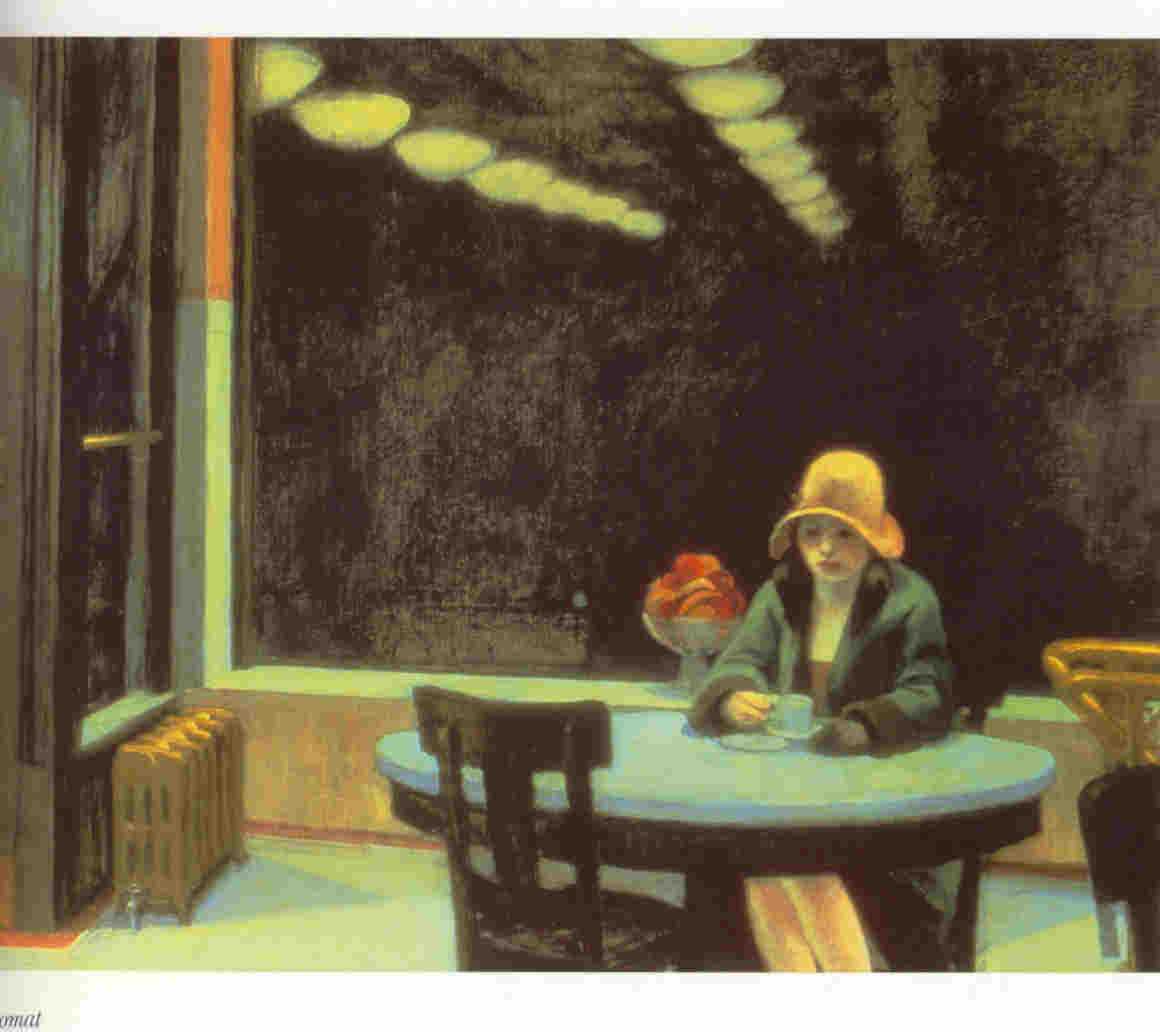
Received the Junior Boys' 'High Come Down' ep and a preview copy of the LP 'Last Exit', courtesy of electrokin's Nick Kilroy.
And they're a real disappointment...
Just kidding of course. 'Last Exit' is every bit the immaculate masterpiece we've all been expecting. All the hits are here - 'High Come Down', 'Birthday', 'Last Exit' - and I defy you to find another LP that will come out this year that contains so many seductive hooks. There's not one track that won't insinuate its way into your nervous system.
Each Junior Boys' track has the late-night, electric-lit intimacy of an Edward Hopper vignette.
The Jbeez at the moment are masters of what Eppy has called Pop 2. Or almost: for Eppy, Pop 2 tends to run 'at least 10-15 years behind what's actually popular at the time' but, while there can be no doubt that the Junior Boys' return to the eighties synthpop template, no-one could seriously mistake any of the tracks on 'Last Exit' for anything actually produced in the eighties. That's because, for all their debts to synthpop and old skool Timbaland/ 2-step rythmic tricksiness, central to the Junior Boys' sensibility is a taste for a certain strain in MOR. Where MOR at its most asinine and mediocre simply retreats into Pop classicism, disdaining new technology and technology for trad instrumentation, the Junior Boys recall the experimental, electronics-friendly uneasy listening of the likes of Steely Dan, the Blue Nile and Hall and Oates.
So with a fair wind following, there's no reason at all why the Junior Boys shouldn't cross over into Pop 1. It's true that Pop 1 just now is especially hostile to everything the Junior Boys swoon for. The Junior Boys highlight everything that's wrong with Now Pop's ideology of Strength. The dominant hip hop-derived R and B sound has room only for powerful women and tough men. It tends towards the anthemic, the bombastic and the full-on: there's no space for ---- space, for the shivers, whispers, and breaths that are the Junior Boys' stock-in-trade. 'It seems I disappear,' Jeremy sings on 'When I'm Not Around', in what amounts to a declaration of intent. Compare Jeremy's anaemic, blurry vocals to the dull focus of the generic Pop Idol
'strong' voice. Yet why not hope for a change in appetite, why not hope that vulnerability, doubt, languor, even feyness, might find a mass market once again?
February 14, 2004
HOUSE AT WORLD'S END
Really enjoying House at World's End . For some stupid reason, this is not a blog I've checked regularly until recently, but Robin's impressively knowledgable riffs on Englishness, politics and pop culture are really models of what you can do with a blog. Themes and motifs interweave and recur, circling around each other, acquiring new associations with each repetition. But I'm sure you all already know that.
February 12, 2004
IT MUST HAVE MEANT SOMETHING TO THEM IN A PREVIOUS LIFE
Following Tom's recommendation, I'm really rather enjoying Talent in a Previous Life . I have to appreciate the disturbing perversity of its obsession with Girls Aloud's Nicola (yes the ginger) and its forensically meticulous sift through C4's lazy and derisory 100 Worst Singles Ever. (Although I can't for the life of me understand why they go along with the bizarre notion that Cher's Believe was a poor record).
February 10, 2004
TIMBALAND NOT A POPTIMIST SHOCK

Couldn't agree more with Simon. 98's 'Are You That Somebody' (beautifully evoked by SFJ in his NYT piece) was Timbaland's peak moment for me, too: a swooningly heartbreaking Aaliyah vocal, a gorgeously lovelorn lyric, that found-sound baby-crying looped sample (like some displaced fragment from Lee Perry's schizoverse), and Timbaland at his most impishly inventive and rythmically innovative, pulling the rug from under your feet while keeping you dancing. I remember thinking, this is it, this is definitely as good a Pop record as has ever been released. What you could hear were possibilities, whole new vistas opening up, Pop (and with it, life) being renewed. That's precisely what I'm missing from Timbaland (and Pop) now. Timbaland's undoubted competence today cannot but sound infinitely inferior to the giddy thrill of discovery on those 97 and 98 tunes. (Another moment of casual incandescence: Ginuwine's 'Same Ol' G', almost thrown away on the Dr Dolittle OST). They were more than 'good records', which is what we're invited to settle for now, they were new ways of hearing, new ways of perceiving, of being affected. It's because Pop is more than music that 'good records' shouldn't ever be enough.
Worth noting that SFJ's analysis reinforces the point I've made here about hip hop's hegemonic spread. 'Over the last decade, hip-hop has become that common tongue for global pop, and what we might call Timbatunes are establishing how that language is spoken right now.' SFJ is being celebratory, triumphalist even, yet there's obviously another way of reacting to this duopolization. Becoming 'the default moves for much of pop music' is a mixed blessing at best. The fact that 'the Rolling Stones hired the Neptunes to do a remixed version of ''Sympathy for the Devil"' might be 'an indication that something or someone is not going away' yet it's also, inevitably, an indication of total incorporation. That wouldn't matter in itself - one shouldn't despise success in the name of some hipsterish outsider-cred or elitist exlusivism - yet this level of acceptance is almost always a sign that an artist has ceased their process of becoming, of self-overcoming. They're no longer intense, in tension; everything is resolved, recycled, recognisable. 'A procedural machine stamping out hollow gloss-encapsulated placebos', as Robin put it.
The remarks Simon quotes from Timbaland scream out weariness and ennui. He certainly don't sound like no poptimist. Timbaland sounds like Kurtz at the end of Apocalypse Now: he's waiting, wanting someone to kill him off. That's what we need, something to reset the defaults . He's clutching at straws with his appeal to country and rock, they are themselves default fallback options, solid blue chip stocks in a time of uncertainty. The assassins won't come from that direction. They'll come from somewhere unexpected.
They always do.
(Glad, though, to see that TWO of k-punk's highlights of 03 [the hyper-caucasian Coldplay and Dido] receive the Timbaland seal of approval. Pleased also that SFJ appreciates Dido's 'White Flag.')
February 09, 2004
RETROFUTURE

'The concept of retrofuture and parallel has always interested me since being subjected to black and white sci-fi movies as a child. "Quatermass" and "The Robot Monster", added to "Un Chien Andalou" etc. from the Art end. Plus being mentally warped by a diet of American B Movies from a very early age in Lancashire. Seeing this stuff without understanding any of it, you begin to make up your own stories and connections, which are much stranger than the original intentions. Also these become incorporated into your personal dream grammar. It's an equally wonderful and terrifying cinematic /hallucinogenic/schitzoprenic early neural programming. David Lynch is someone else who dips into the same image bank. So are Gilbert and George. So is Robert Wilson, so is Alain Resnais. So are Kraftwerk.'
February 08, 2004
TURBOWHAT?
I got called a 'turbodouche' in the comments to this post at clap clap blog. Can anyone enlighten me on what this means? Should I be consulting my lawyers?
THE ART OF PARTIES
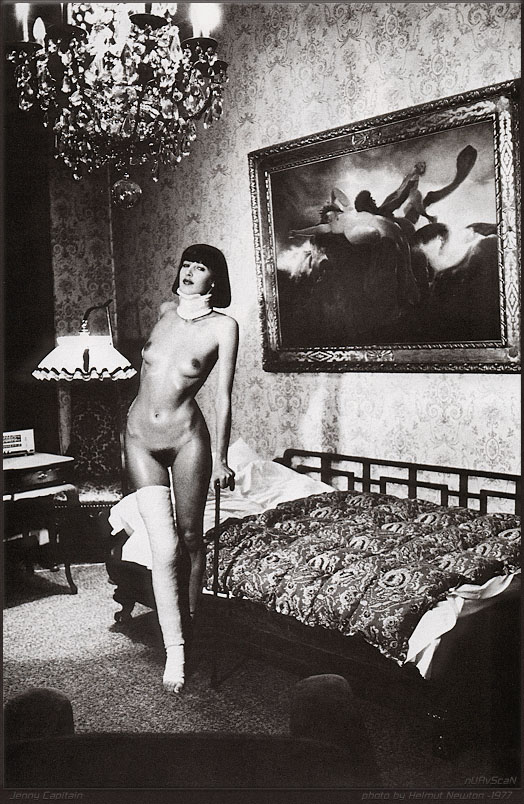
The death of the playboy photographer in a car crash.
It’s almost too perfect, something Ballard could have dreamt up, appropriately enough, since he has been writing Newton’s photographs for the last thirty years, just as Newton has been photographing Ballard’s fictions. They conjoin most explicitly in Cronenberg’s version of Crash , which, for Iain Sinclair, is ‘flick book Newton’, an actualization of the narrative implicit in Newton’s images.
Newton and Ballard, twin celibate machine begetters of all neuromancers. Impossible not to hear the anhedonic neurasthenic party of ‘For Your Pleasure’, for instance, as Newtonian through and through (and that cover image is pure Newton). Ferry, entranced and enraptured by those posed and poised Delvaux statues, those unravishable beauty queens, appreciates what Newton’s every image announces, and he bequeathes the lesson to all his sucessors (Sylvian, Strange): true glamour is aristocratic. Cruel and Nietzschean.
Inevitable that Visage should turn to Newton for the cover images to ‘The Damned Don’t Cry’ and ‘The Anvil’. It’s always party-time for neuromancers, even if enjoyment is usually fastidiously declined, since what matters is the ostentatious consumption of leisure time. Peter York compared the New Romantics to their contemporaries, the Thatcherite Tories, but, in truth, the New(tonian) Romantics eschew neo-conversativism just as utterly as they reject socialism and sixties egalitarianism. They project a universe of Art, not work: life as an aesthetic project, way too studiedly languid for neo-con business. An endless photo opportunity.
‘The Damned Don’t Cry.’ What a perfectly Newtonian title that is. No tears for these hyper rich kids, only carefully cultivated psychopathologies. Ballard: ‘In Newton's work we see a new race of urban beings, living on a new human frontier, where all passion is spent and all ambition long satisfied, where the deepest emotions seem to be relocating themselves, moving into a terrain more mysterious than Marienbad.’
Newton treated women like objects, obviously. Yet his logic is pursued to such a point of perversity that it is would be churlish and gauche to impose obsolete sexual political moralisms onto his work, in part because in really treating women as objects, he desubjectifies them to the extent that these ‘physically striking women positioned in such a way that they are divorced from the bodies they display with such flagrant interest’ (Sinclair) are no longer sexual. Ballard again: ‘Newton … desexualizes his subject matter. His photographs drain the libido from the once charged spaces of the late 20th Century, from hotel bedrooms and luxury bathrooms, and from those penthouse apartments where unwatched porn films play behind the heads of people with more pressing concerns than pleasure or pain.’
Yes, his bodies are far beyond the pleasure principle, indifferent to pain, but is it quite right to claim that Newton drains the libido from the environment? Wouldn’t it be more accurate to say that, rather like the Ballard of The Atrocity Exhbition and Crash, in fact, Newton evacuates the organic body of libido only to distribute it across the surrounding spaces? If the bodies themselves cease to be the exclusive site of allure, then the accoutrements (the sticks, the calipers, the silk, the nylon, the mahogany) become intensely eroticized.

O God please let me die beneath her heels.
Newton doesn’t doubt for a moment that eroticism is profoundly unnatural. Bodies acquire what charge they have only from becoming elegantly contorted into the most excruciating postures .The foot in heels: Newton takes an almost medical interest in the savage twisting of bone.
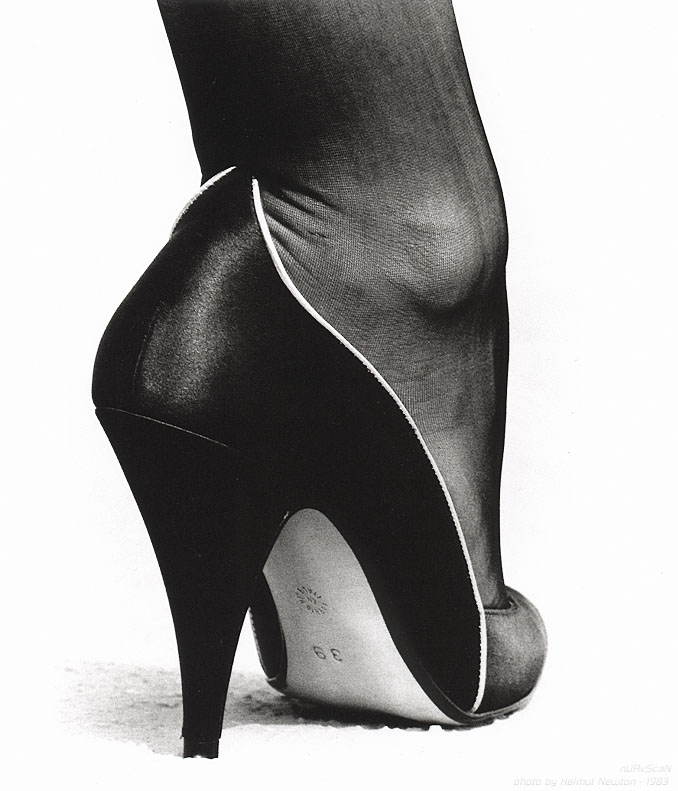
The punishment of luxury.

The Lucid Dreamer, J.G. Ballard
Crash, Iain Sinclair
NOW LISTENING
to 23 Skidoo - 'The Culling is Coming'. A collection of some astonishingly disquieting and unnervingly compelling (un)live performances from 1982. Closer to Neubauten or Cabaret Voltaire than to the dark funk of 'Seven Songs'. Tape loops, bells, metal-percussion, illegible vocal refrains, yells becoming lost in a radioactive fog of echoes: an incantatory sound-sorcery. Industrial religion.
February 05, 2004
ALSO ON THE TOPIC OF CELEBRITY
Popbitch reports:
">> Rip Him To Shreds <<
Now Michael Jackson will be destroyed
Leaks from the Michael Jackson trial paint a gruesome picture of life in Neverland:
* Drawers full of boys' soiled underwear
* Photos of naked blond boys as young as seven
* Attempts to bribe cancer kid Gavin with promises to make him a film star in return for being nice in the Bashir documentary
* More than 100 boys sleeping over at Neverland in the last three years.
As Jackson is nearly broke and no more use to the music industry as a recording artist, it's unlikely he'll have the legal firepower to get off this time.
Instead, this deeply troubled man is going to be torn apart in a media feeding frenzy that reflects a new mood in society: people are starting to resent celebrities and the influence they wield. Jacko will be first sacrificial lamb. "
SCOTT'S BACK
Scott comes out of hibernation --- and well he might the day after the 'greatest comeback in FA cup history'.
TWO SUPEREGOS

Two superegos, again, two 'consciences.'
One: Mark Sinker, the other: Robin Undercurrent.
One telling me to watch, enjoy the other telling me to turn off, reflect.
I feel the pull of them both.
It was only reluctantly, but I suppose inevitably, that I succumbed to watching I'm a Celebrity Get Me Out of Here this time. Part of me goes with Robin and regards it as utterly pernicious trash: at best, a waste of time, at worst, a sign of deep cultural malaise. Part of me goes with Mark and Freaky Trigger: I'm a Celebrity is must-watch TV, trivial but harmless. I was similarly divided about Lydon's appearance: appalled (has it really come to this?) but also compelled (how can I miss this?)
'Now we don't even have programmes on, we have programmes featuring a once-radical figure - as a cipher, a labrat inside the efficiently-clonable dream of a production company,' Robin complains. And who can doubt it? The irony is that Lydon has become his own Public Image, his own simulation, at the same time, as Marcello complains below, that PiL have been excised from his c.v. Still, he had probably plumbed the depths of auto-exploitation with the Filthy Lucre tour. Was it then that he elected to become a pantomime Sex Pistol, to play the part that McLaren demanded of him back in the seventies, but which, then, he rejected? Robin's right, Lydon swearing on TV is playing his expected part to a 't'. There was scarcely any evidence of his chafing against his assigned role. (Even walking out was part of it).
Robin: 'Celebrities as 'normal people', what a crushing double-bind.' Yes, indeed, and that's what I intended to express by talking about 'celebreality': the obverse of 'ordinary people' becoming celebrities on reality TV is celebrities becoming 'ordinary people'. Reality TV is the great leveller, and as such, is inimical to the very aristocratic principle behind celebrity. Celebrity, exactly like royalty, cannot withstand too much 'reality.' Reality TV is only TV to the nth degree. As McLuhan said, when people passed film stars in the street, they would think 'That's a screen star!' but when they passed television stars, they would say, 'That's someone I know.'
My God, as I type, there's a programme on ITV in which Fern Britton and Philp Schoffield are almost counselling Neal Ruddock's mum on his ejection last night. The solemn gravity, christ, you'd think he'd been in a train crash....
Check this. Christine Hamilton on Lydon: 'I feel let down by him.'
P.S. So much for k-punk's powers of prediction. Only hours after k-punk announced a Jordan-Lydon final, Lydon walks out.....
POPTIMISM (YES, AGAIN)
The Poptimism thing won't go away. Now Joe at The New Hip Hop, Political Correctness Trend enters the fray.
There haven't been many k-punk posts that have produced so much response, both here (in the comments) and on other blogs. And there haven't been many posts that have generated so much misinterpretation, either. Granted, it was a post that invited misinterpretation.
It's worth remembering that my piece was originally a response to Marcello's vast 1985: the worst year for music ever. Marcello's disection of the grisly remains of that year were offered up as grim warnings of the perils of poptimism.
Now some, and Joe is clearly one of them, find the idea that poptimism could be dangerous risible. Who cares what the equivalent of 2024's bloggers will think of 2004?
But my point wasn't about the judgement of history. That begs too many questions about who is sitting in judgement, and when.
No. My point was about being coerced by the pressure of the present into settling for less, being bullied by Now into betraying your own libido. It isn't that people who enjoyed music in 1985 are now shamefaced because of the judgements of a few bloggers. (That would indeed be ridiculous.) It's not a question of being shamefaced at all. It's a matter of a gradual realization, as the intensity levels rise again, that what had become acceptable as 'good pop' was anything but. So it's not some far-off court of taste that will 'decide' 2003 wasn't so great; it's 2004, or 2005 - whenever Pop stirs itself again.
Joe's point about nostalgia is a curious one. In my original post, I said that it was the nay-sayers, the anti-poptimists , who would have been accused of nostalgia. And being an anti-poptimist is in a sense nostalgic, if saying that there are times when Pop was better than it is now, is nostalgic.
Joe also adds a frankly bizzare reading of my sign-off remarks on Tears for Fears.
After quoting my comments "(I hold the first TFF album in high esteem: and their decline, their massification and blusterization is symptomatic of everything that went wrong in the Eighties.)", he writes:
'The pathos of parentheses. I want to buy the guy a drink and say DUDE, so you like the first Tears For Fears album? SO? Why would you burden yourself with feeling bad about it, why would you let your distaste for the band's subsequent work and what it may or may not be "symtomatic" of tarnish your memories or the enjoyment you get from listening to that album now?'
Where did I say I was feeling bad about liking the album? On the contrary! Marcello had rightly singled out the 85 TFF for a kicking; I was merely pointing out that their debut was much better. The point was about the difference between 1982 and 1985, and how TFF's decline reflected that.
Stepping back from what Joe said, and reflecting on this whole discussion, there seem to be two Poptimist positions:
1: The idea that pop, now, is good.
2: (encompassing 1) The idea that pop is always good.
Position 1 Poptimism strikes me as pretty threadbare - Joe's own examples (Timbaland/ Missy, the Neptunes) are, as his own qualified praise seems to grant, past their best. And even if you get enjoy the new Neptunes and Timbo material, do you enjoy it as much as what the Neptunes were doing three years ago, or what Timbaland was doing six years ago? 2003 was a mediocre year for both of them. They aren't the issue, though: the fact that they haven't been upstaged by any new pretenders is. I'll say it again: hip hop is the problem in 2003/4. It might be a positive problem, something that Pop has to reinvent itself to overcome. But hip hop circa now is Pop's bloated, unreflective default option. Timbaland and the Neptunes need the carpet pulling away from them, just like punk pulled away the carpet from the Stones and the dinosaur rockers in the mid 70s.
So Position 1 I would vigorously dispute, but Position 2 seems to me utterly indefensible, except in the sense that Mark Sinker was adopting it, as a kind of a priori methodological hypothesis. (See comments on this post). Mark's claim was that all chart pop is, by definition, 'good pop' in that it works. Mark is not a Poptimist proper though, since he wants to set aside questions of evaluation, in the name of (what I would characterise as) a machinic analysis: 'I'm interested in what it's doing, and what I can do with it' (not how good it is [alleged to be]).
What's odd about Poptimist position two is that it seems to be out of step with the experience of being a fan: the ups and downs, the expectations and the disappointments are part of the masochistic reel/real of being a popfan, subtracted out by the sunny side-up, 'you can always find a good record if you look for it' enlightened connoisseurship of the Poptimist.
You can find 'good records' in any year. But that doesn't make every year a good year for Pop.
DE-NOMINATION
Tom weighs into the debate on the genre-never-formerly-formally?-known-as-grime. '"part of the collective swagger of a scene that’s on the up and brimming with confidence is having a name and using it",' he writes, quoting Simon, 'on the other hand knowing something's name = having power over it, including commercial power. A scene-name can be exploited by outsiders as easily as insiders.' Sure, but such exploitation is a by-product of a genre moving out of the shadows, ceasing to be introverted. Tom must be right that 'the nameclashes seem to [be] part and parcel of the competitive, conflict-driven nature of the scene/sound', but such conflict, indefinitely pursued, can only end up in the scene becoming even more fractured, with even fewer sales. Eski at the moment might be largely free of exploitation from outsiders, but the cost of that - and it is a real cost, at every level, including the economic - is that insiders can't 'exploit' themselves or their sound, either. Besides, the dialogic, intensely antagonistic nature of hip hop didn't prevent it being named.
Speaking of names, has anyone figured out the citta violenta and the a time for fear brands? New posts on both today, but what's the criteria for posting on one rather than the other, Oliver?
EVERY NIGHT IS LIKE SUNDAY
'I hate Sunday nights: I can't go to sleep, because I don't want to feel the disappointment of waking up.'
Thus speaks Baal . Wonderfully horrid story about the cat, too.
February 04, 2004
THIS PROGRAMME COULD CONTAIN STRONG LANGUAGE
Blimey! Some sort of (post)punk infection....
Not only does 'I'm a Celebrity...' feature John Lydon (now more than ever resembling Old Man Steptoe), but tonight, its opening sequence was soundtracked by.... 'Love Will Tear Us Apart'.
OK, I'll admit it, against my will (honest!), I've been sucked into watching. Partly it's the disquieting thrill of reality disjunction. Lydon (so evidently charismatic, so gargantuan a cultural presence) is from another world, another ontological plane, to the rest of them. There's the same frission that must have occurred with royal visits before the royal brand became fatally compromised. Lydon is so much bigger than everyone else in the camp, all those hasbeens and never will bes. The inevitable face-off between Jordan and John (who are surely destined to be the last two standing) will be a struggle between Celebreality and an older, (superceded?) version of fame. Jordan, the pumped-up quotidian, a kind of hyper-exaggerated ordinary, John, last denizen of a mythic age...
BTW, nice to see that some thing's don't change. Lydon's 'fucking cunts' outburst live on ITV was Bill Grundy all over again.
GIVE IT A NAME
Matt disagreeing about the Name Issue. But k-punk remains insistent. When there is a threshold shift in sound, there HAS to be a new name. Simon is surely right: if we're going for garage, we might as well opt for something even more non-specific like 'hardcore'. (Not that the decision will be made by 'us' of course). 2-step might not have been a particularly resonant name, but at least it did the job of registering a shift in sound, mentality and methodology. 'Rap' would do more harm than good, suggesting a set of affinities and alignments that are problematic and misleading (cf the blog debate a while back about why eski isn't hip hop). What have you got against specificity in genre names, Matt? Surely there's a contradiction in both calling for the name 'garage' and the name 'rap'? The very fact that both are in some sense appropriate is precisely a reason why a new name is necessary (and an ungainly hybrid like 'garage rap' won't cut it either). Incidentally, I'm not sure what Matt means by saying that great names 'be they detourned insults, always come from within.' The scene must at a certain stage 'elect' to accept and detourne the insult, for sure, but, since it WAS an insult in the first place 'jungle' (like 'desi') originally came from outside. By the way, wouldn't Matt's logic, if in place at the time, have led to a resistance to 'jungle': 'No, let's stick with hardcore.'
Luke is no doubt right to say that 'anyone who thinks the lack of a name is going to spell the death of the music is crazy anyway' (see woebot comments); yet that isn't to say that the lack of a name doesn't reflect a certain crisis in the scene. Crisis has a positive sense: lack of resolution means that a scene is still germinal, still unsure of exactly what it is, still in a state of becoming - not 'branded', in any sense of the term. Yet (contra Woebot) I would suggest that perpetual avoidance of auto-branding is damaging for a scene. Simon MUST be right that the lack of a name is holding the scene back.
'I guess the real issue at stake is that magazines and the cross-over crew don't just need a name, a handle, they need a NEW name,' Matt writes. 'It's packaging and advertising isn't it, a NEW product is needed to stock on the shelves.' But the product IS new, and perversely refusing to i-d it in some spirit of anti-media lockdown is like flat-earth folkies resisting electricity. There is a difference in being named BY the media and being named FOR the media.
Taking a step back, there are two interesting things about genre names.
1) They involve a COLLECTIVE UNCONSCIOUS. An individual may come up with a name, but its acceptance amongst a scene is a 'decision' taken collectively, not, needless to say, by committees debating round a table, but by the unconscious desire of the Massive. Only if a name resonates with this unconscious collectivity will it stick. It's like a chemical reaction.
2) Naming is not a neutral act of referring. Naming produces surplus value, something that wasn't already there in the first place. 'Jungle' is a classic example of this: the name didn't just describe a style, it provided an instant mythology. There's a lack of will to myth in falling back on 'garage' (which IMO was never a great name any way).


